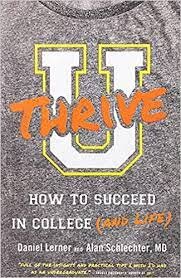Lecture 12:
What Does Lead to Happiness Part II:
The Importance of Healthy Social Connections
“People exist for one another.”
- Marcus Aurelius
We are a social species. That is how we evolved - it is deeply engrained in our DNA. We need each other - not only to thrive as a society - but to thrive in our mental and emotional lives. What do people who are nearing the end of their lives look back upon as to what gave their life meaning and purpose? People, relationships, and connection. The quality of those relationships - the depth, meaning, and impact of connection. Indeed, solitary confinement is one of the harshest punishments we deliver to people - even the most hardened. We all need each other. We all need healthy and skillful connection. We all need to feel loved, appreciated, heard, and connected.
The quality (much more than the quantity!) of our connections has a huge impact on our perceptions of life-quality. We are so neurologically connected with others that even our friend’s friend’s friends (e.g. people we don’t even know) have an effect on our happiness (by an average of 6%, an effect size that is significantly higher than if you added $10,000 to the average income!). Science proves our well-being depends upon being surrounded by people who truly and deeply care for us, and for us to truly and deeply care for them. This is one of the many reasons why both loving ourselves and choosing the right people to love is so vital.
The pandemic was an international stress test on our resiliency and the importance of our social connections to our mental well being. The levels of anxiety disorders, depression, and PTSD among young people sky-rocketed to never before seen levels. We now realize that, despite all of our tools for social connection, we live in one of the loneliest times our society has ever experienced. If the COVID era has made you more susceptible to anxiety and depression, it may be time to turn your attention towards your relationships and ask: “Who am I really spending time with? Do they support my well-being? Am I supporting my loved ones’ well-being or only my own? What habits can I change to deepen my connections with others?” And for your romantic relationships: “What relationship type am I, and why? Am I in an honest and respectful partnership? How can I know myself better to work towards becoming secure? What can my partner and I do to improve communication on our insecurities?” By answering these questions and acting on solutions, we guarantee not only your relationship with others, but your relationship with yourself, will bloom.
Learning Objectives:
Healthy relationships are well correlated with happiness/well being
This could be with your family, friends, romantic partners, or yourself (even your friend’s friend’s friend's happiness affects you!)
In addition to Fight/Flight/Freeze responses, there's the “tend and befriend” response during stressful situations
A healthy relationship between 2 people entails 3 parts: you, your partner, and your relationship; both people should balance care for all 3
Your “go to” pattern of responses to others can strongly influence your relationship; the best is “actively constructive”
5 markers of healthy vs. unhealthy love are: 1) Intensity; 2) Isolation; 3) Jealousy; 4) Belittling; 5) Volatility
4 “Yellow flags” in relationships: 1) Escalation; 2) Invalidation; 3) Negative Interpretation; 4) Withdrawal
Putting Happiness into Practice:
Weekly Activity:
Savor the Moment!
During this week, your assignment is to spend time outdoors. Hike up Spencer Butte or Hendrick's Park (which is near campus). If you can’t do that, go for a walk where ever you are. Do it by yourself, or with friends/family, but however you do it, walk quietly, in silence, and savor the beauty around you. Our minds are always so busy, immersed in our human world, we don’t recognize the beauty around us. Make sure you spend at least one hour this week savoring, in silence, that natural beauty. Try and use the meditative skills you learned in a previous exercise to quiet your mind and be present during your walk. Write about your experience in your journal.
Read
You can purchase Uthrive here and read “Chapter 2: Relationships: Getting Connected”
“8 Things You Should Never Say to Your Partner, According to Therapists” - NY Times
Watch
Listen
-
“Lessons From the World’s Longest Scientific Study of Happiness” - Ten Percent Happier


